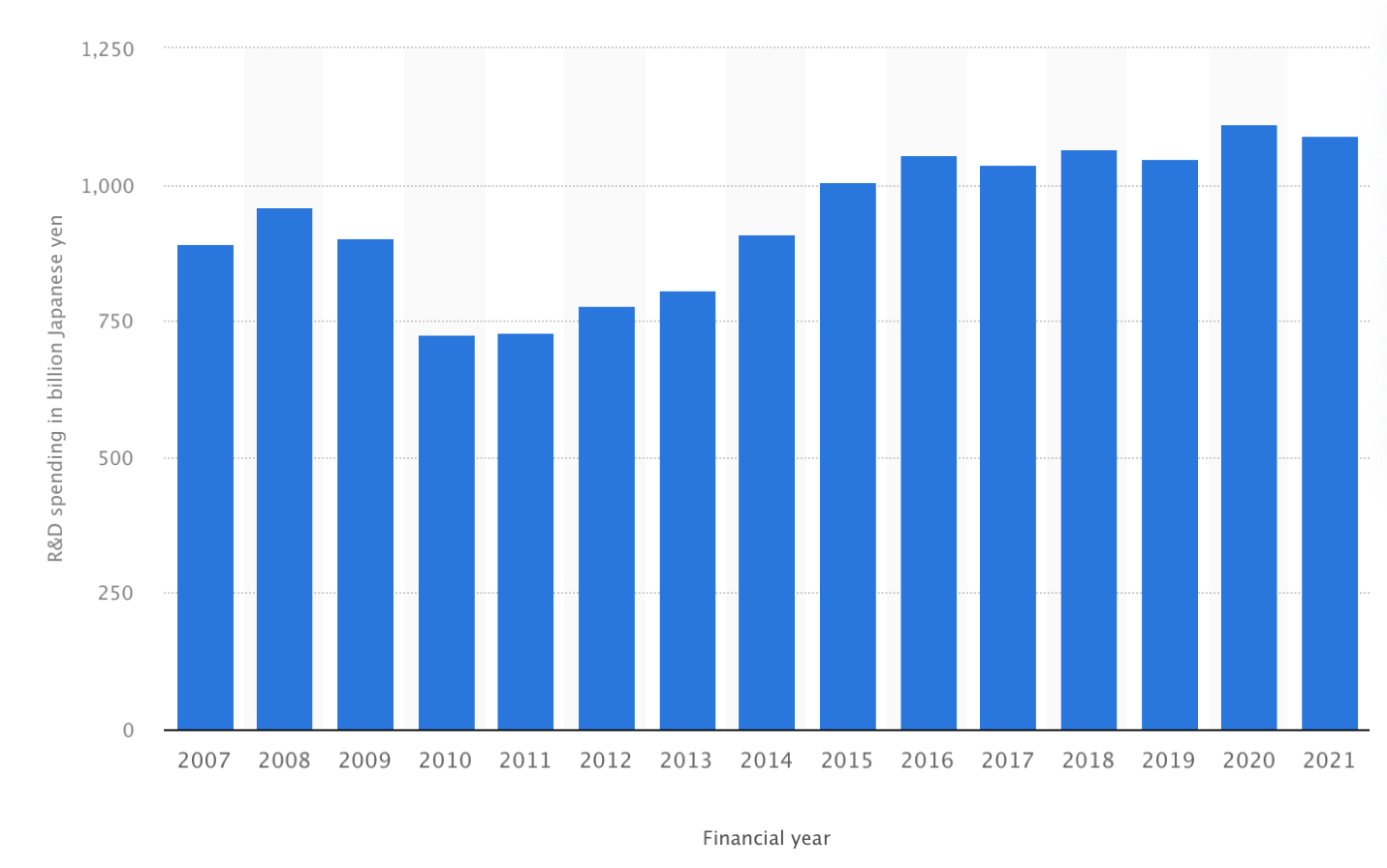One of the factors of consumer success and achieving a strong competitive advantage in today’s companies is a commitment to innovation. Innovation should be thought of as any innovation in a company that aims to increase productivity and optimize labor. In other words, many of today’s companies, especially the largest ones, try to use innovation in their operating practices to achieve commercial success. The automotive company Toyota is no exception: having a long history of presence in the industry market, the Japanese company has been able to accumulate enough experience to manage and implement innovations in its products and operational strategies. In addition, Toyota is indeed the largest automaker among all countries, which means that the organization has enough resources and opportunities for innovative development. Finally, one should not forget that Toyota’s market industry is the automotive sector, which is one of the most competitive and profitable industries. Thus, it is correct to conclude that there are inquiries about Toyota in its commitment to a culture of innovation.
Innovative technologies are well traceable in the automotive industry, from the classic retro cars of the last century to the most modern electric sports cars that use machine learning intelligence for complete autopilot. While the functional role of the car, namely transportation from one point to another, is not changing, there are metamorphoses in the process of this movement. Almost every aspect of the modern car is undergoing innovative progress, from changes in engines to the actual form factor of the car and its design. Toyota’s management is well aware of this, as the brand image is often associated with technology and product innovation. Among the key indicators that can show the success of the introduction of innovativeness into the company’s working practices are profitability, customer engagement, and satisfaction as factors of the external environment. From an internal point of view, such metrics could be the annual budget spent on R&D and the number of patents.
From an external perspective, it seems that innovation is not the least of these at Toyota. As has been said, there is much competitive pressure in the automotive industry, and consumers tend to give money for the most advanced and technologically advanced yet functional machines with an excellent price-performance balance. Profitability then is a good metric, indirectly showing innovation in the company. At Toyota, annual profitability was $275.9B last year, compared with the closest competitors at $134.6B (Ford), $312.5B (Volkswagen), $131.8B (Honda), and $130.9B (GM) (Toyota’s, 2021). Among consumer satisfaction, Toyota is firmly in third place for the Lexus sub-brand and 10th place for the mainline of vehicles (Arbor, 2021). Indirectly, this could mean that Toyota maintains a robust level of commitment to innovation.
In terms of internal indicators that illustrate the commitment to innovation within Toyota, many also confirm a cult of innovation for the Japanese company. In particular, the company remains a leader in R&D, steadily increasing the number of patents it receives. For 2020, the number was 2,819, up 4 percent from 2019 (Arbor, 2021). Budgeting for R&D-related expenditures is also on the rise. For example, in 2021, this spending was $9.57 billion compared to $9.20 billion in 2019, as shown in the Figure. This data is enough to understand that innovation at Toyota is an essential factor in guaranteeing the Japanese automaker’s success.

References
Arbor, A. (2021). Honda races into first and Lexus gains competition in luxury, as customer satisfaction with auto industry stays in neutral, ACSI data show. Businesswire, Web.
Arbor, A. (2021). Toyota remains R&D patent leader among automakers. Toyota. Web.
Carlier, M. (2021). Toyota’s R&D expenditure 2007-2021. Statista. Web.
Toyota’s. (2021). Owler. Web.